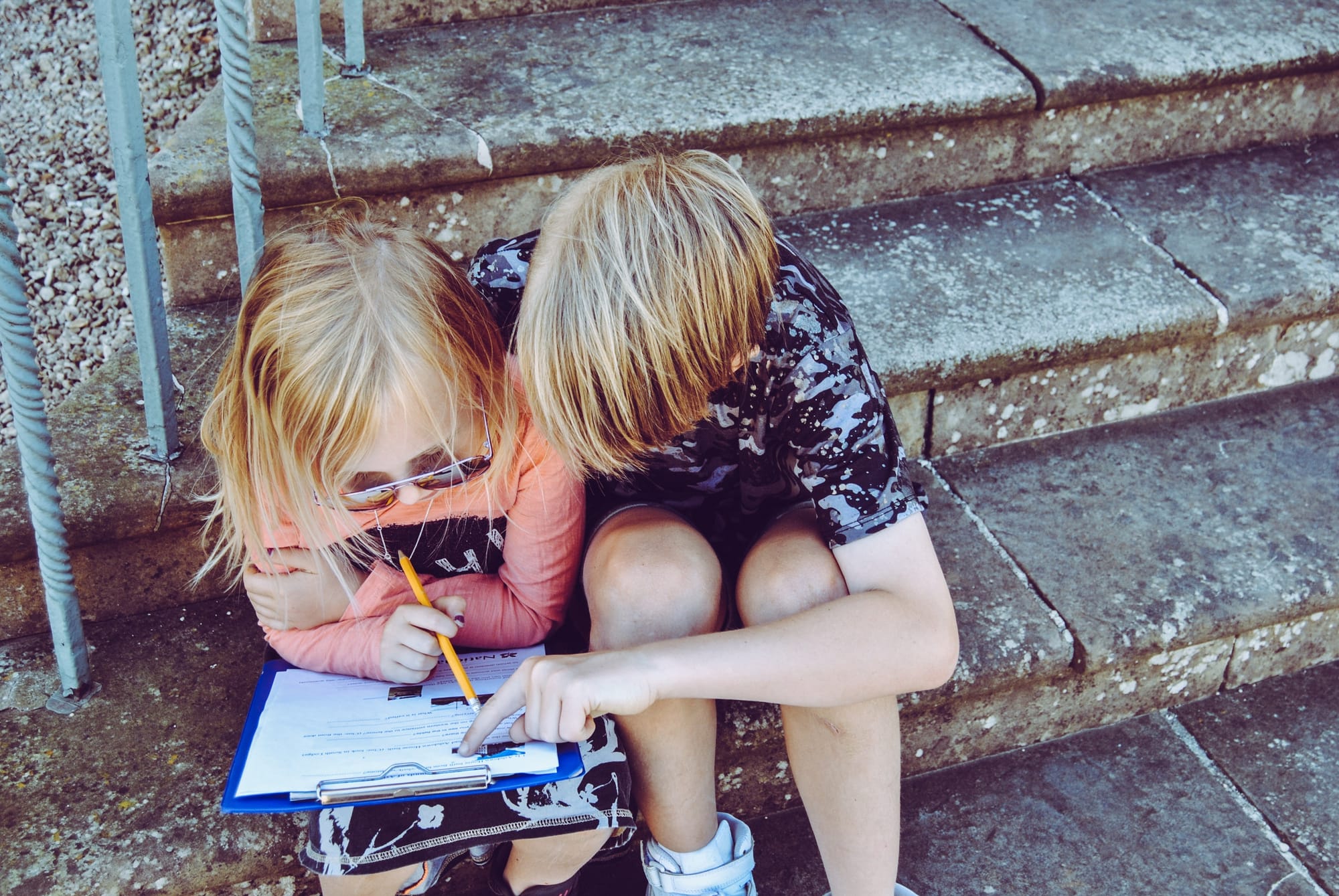Delegate tasks to older siblings

Delegate tasks to older siblings
Delegating tasks to older siblings can not only help reduce the workload for parents but can also teach valuable life skills and foster a sense of responsibility in the older child. Here are some reasons why delegating tasks to older siblings can be beneficial:
- Teaches responsibility: Delegating tasks to older siblings allows them to take on responsibility and learn how to manage their time and tasks effectively. This can be especially beneficial for their personal development and growth.
- Promotes teamwork: By involving older siblings in household chores or other responsibilities, it promotes a sense of teamwork and cooperation among siblings. They learn the value of working together towards a common goal.
- Builds life skills: Delegating tasks to older siblings gives them an opportunity to learn important life skills such as time management, problem-solving, and organization. These skills will benefit them throughout their lives.
- Reduces parental workload: Delegating tasks to older siblings can help parents in reducing their workload, allowing them to focus on other important aspects of parenting or have more quality time with their children.
- Develops leadership qualities: Delegating tasks to older siblings can help them develop leadership qualities as they take charge of certain responsibilities and learn to guide and motivate younger siblings.
- Boosts confidence: Accomplishing tasks successfully can boost the confidence and self-esteem of older siblings. It gives them a sense of achievement and shows them that they are capable of taking on responsibilities and contributing to the family.
- Teaches the value of hard work: Delegating tasks to older siblings helps them understand the value of hard work and the importance of contributing to the family. They learn that every member has a role to play in maintaining a harmonious household.
- Fosters independence: Delegating tasks to older siblings encourages them to be independent and self-reliant. They learn to take initiative, make decisions, and complete tasks without constant supervision.
- Promotes empathy: By involving older siblings in tasks that benefit the entire family, they develop empathy and a sense of responsibility towards others. They learn to consider the needs and well-being of others.
- Creates a sense of belonging: When older siblings are given responsibilities, it creates a sense of belonging and ownership in the family. They feel like important contributors and valued members of the household.
Now that we have established the benefits of delegating tasks to older siblings let's explore some practical tips for successfully implementing this:
- Assign age-appropriate tasks: Make sure the tasks assigned to older siblings are suitable for their age and abilities. Assigning tasks that are too difficult or overwhelming can lead to frustration or dissatisfaction.
- Explain the importance: Clearly explain to older siblings why their help is needed and how it benefits the family. Understanding the purpose behind the tasks will motivate them to take ownership and complete them responsibly.
- Create a routine: Incorporate delegated tasks into a daily or weekly routine. Having a consistent schedule helps older siblings understand their responsibilities and creates a sense of structure.
- Provide clear instructions: Give older siblings clear instructions on how to carry out the assigned tasks. Provide guidance and support if needed, especially for tasks they are not familiar with or have not done before.
- Offer praise and appreciation: Recognize and appreciate the efforts of older siblings. Offer praise for their hard work and completion of tasks. This reinforces their sense of responsibility and encourages them to continue contributing.
- Rotate tasks: To avoid burnout or monotony, consider rotating tasks among older siblings. This allows them to learn different skills and prevents any one child from feeling burdened with too many responsibilities.
- Set realistic expectations: Set realistic expectations for the completion of tasks. Avoid putting unnecessary pressure on older siblings and acknowledge that they may need time to adjust and learn.
- Communicate openly: Encourage open communication and dialogue with older siblings. Allow them to express any concerns or difficulties they may face in completing their assigned tasks. Find solutions together and provide support when needed.
- Lead by example: As parents, it is important to lead by example and demonstrate responsible behavior. Set a good example by actively participating in household chores and fulfilling your own responsibilities.
- Encourage teamwork: Encourage older siblings to involve their younger siblings in completing tasks whenever appropriate. This not only promotes bonding among siblings but also teaches older siblings the importance of guiding and mentoring others.
Delegating tasks to older siblings can be a win-win situation for both parents and children. It not only lightens the load for parents but also helps older siblings develop important life skills, responsibility, and a sense of belonging within the family. By following these tips, parents can successfully involve older siblings in household chores and responsibilities while fostering a positive and supportive environment within the family.
Remember, delegating tasks to older siblings should be done in a fair and balanced manner, taking into consideration their age, abilities, and other commitments such as schoolwork or extracurricular activities. It is important to strike a balance between their responsibilities and allowing them to enjoy their childhood and pursue their own interests.